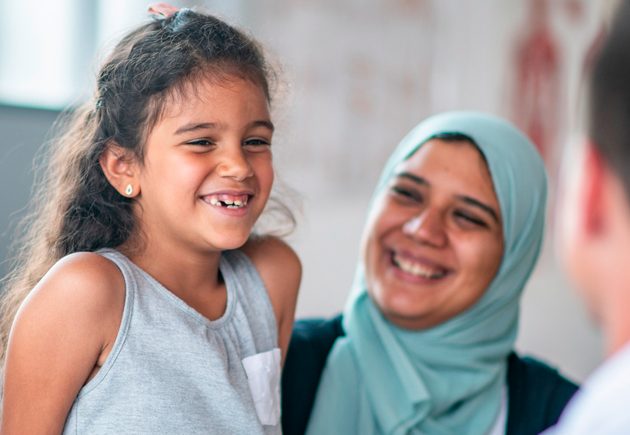Helping Every Philadelphian Reach Their Full Potential
The Jefferson Community Health Collaborative is a broad-based community collaboration and action network that addresses health inequity challenges in Philadelphia.
Inequity in our society is deeply rooted and creates the foundation for causes of poor health. It is our intention to address those structural causes through deep partnership with community and faith-based organizations, businesses, entrepreneurs, and a broad base of advocates to address upstream causes of health inequity.
Today, the life expectancy of a baby born in Center City is more than a decade longer than one born in South Philadelphia, and 20 years longer than a baby born in North Philadelphia.
Philadelphia’s Challenge
At a time when more than a quarter of all Philadelphians live in poverty, there is no one-size-fits-all solution to the Philadelphia Challenge. It will take targeted efforts addressing the multiple social determinants of health impacting each Philadelphia community. Learn more about our initiatives.
Campaign Priorities
Philanthropy is central to our mission—a catalyst for real change in the community. It allows us to support programmatic needs, launch new endeavors, and give all Philadelphians the resources they need to achieve the best quality of life. Together, we can eliminate the health inequities that have plagued Philadelphians for far too long, paving the way for other communities to follow.
The Hansjörg Wyss South Philadelphia Wellness Center
The Hansjörg Wyss South Philadelphia Wellness Center will serve as the hub of Jefferson’s clinical and educational outreach activities for the city’s southern neighborhoods, particularly targeting the area’s significant immigrant and refugee populations. Located in the Bok Building—an anchor for the surrounding community—the Wyss Center will be a one-stop-shop offering primary and preventive care, outreach, and educational offerings to this overlooked patient population, regardless of health insurance or citizenship status.
Philanthropy is a core part of the Wyss Center’s mission. Thanks to a leadership gift from the center’s namesake, we have recently broken ground on the clinic and launched a $5 million fundraising initiative to enact our ultimate vision for the space. Your philanthropic support will enable us to create the only medical practice in Philadelphia providing comprehensive, integrated medical care and health education for immigrants, refugees, and the surrounding South Philadelphia community.
children go hungry
of the population is obese
of children are living in poverty
